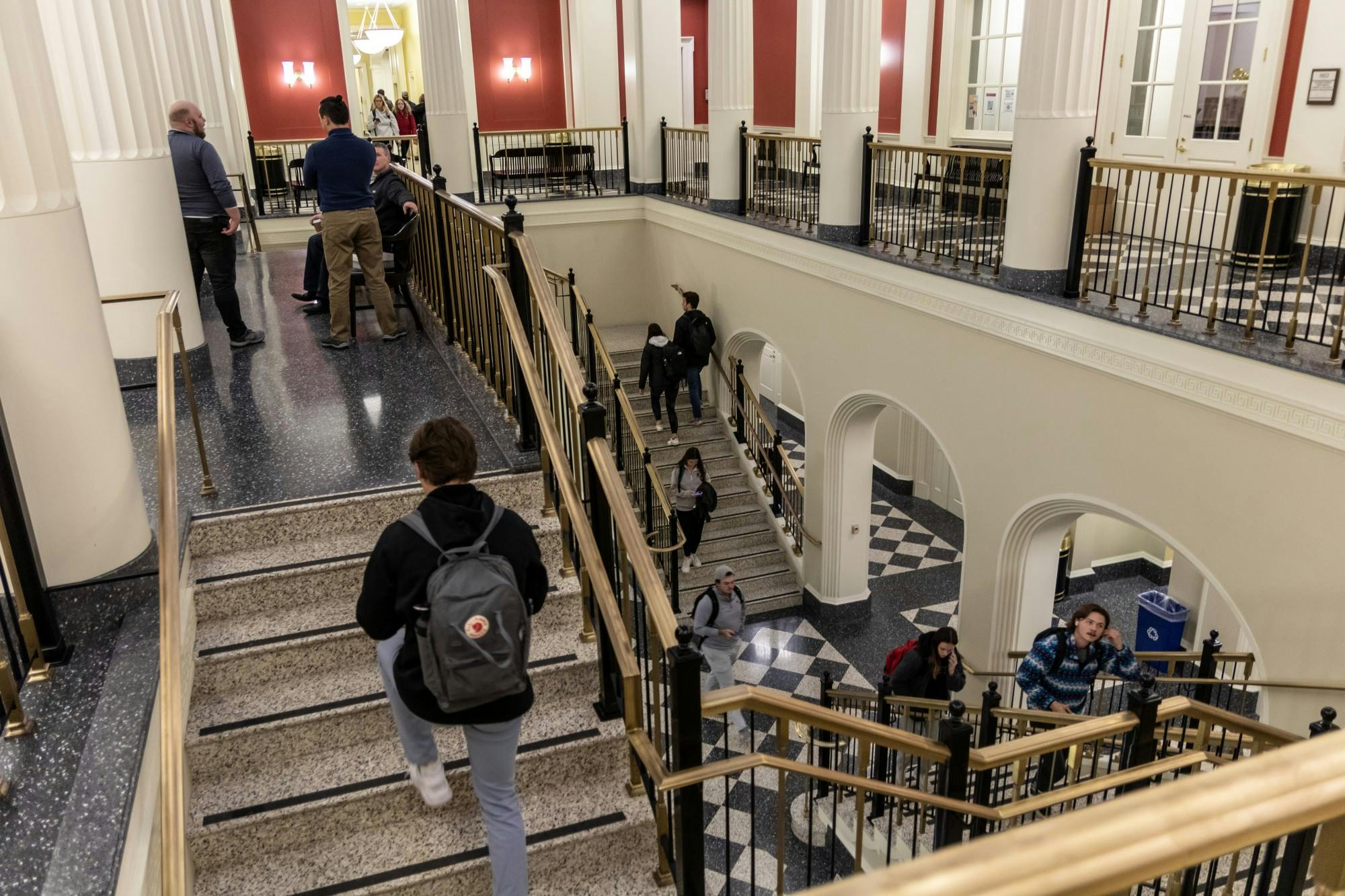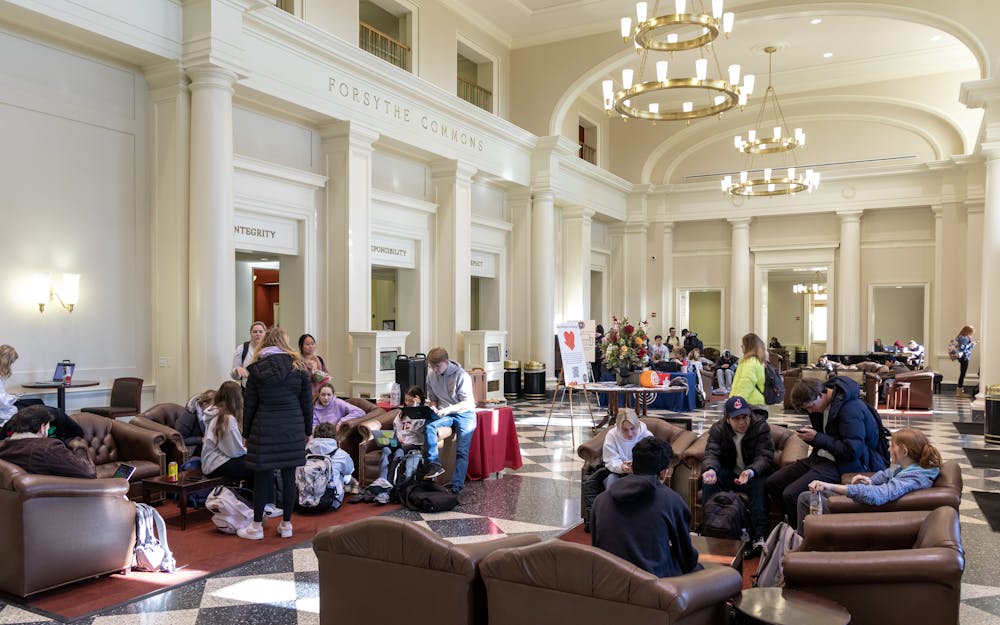Students and faculty alike may have noticed a few more faces in classes and around the halls of the Farmer School of Business (FSB).
Bethany Perkins, assistant vice president and director of admissions for Miami’s Oxford campus, said Miami enrolled around 850 students into FSB in 2018, keeping the prestigious program small among its competitors. Since then, those numbers have increased by more than 37%.
“We plan on keeping the goal at 1,100-1,300 students, hoping to land around 1,200 students,” Perkins said.
In 2021, FSB enrolled more than 1,300. Jess Bathe, personnel manager for FSB, said they aimed to cap admissions at around 1,200 students in upcoming years. For the current semester, more than 1,100 students are enrolled.
One less professor, 250 more students
While the number of students has increased, the number of professors in Farmer has remained virtually unchanged since 2018. Bathe wrote in an email to The Miami Student that the college had 170 professors in 2018, and 169 professors in 2022.
The static number of instructors, along with an increased number of students, has led to enlarged class sizes, mainly in the 100 and 200 level courses.
Brain Ballou, professor of accounting and Miami MBA faculty director, said FSB took a financial hit during the COVID-19 pandemic. He believes the increased enrollment was a way to remedy that loss in revenue.
Despite their efforts to avoid sacrificing quality for quantity, Ballou feels certain aspects of what makes FSB great have been lost in order to accommodate growing class sizes.
“There’s always a bit of a quality/quantity trade off when it comes to class sizes getting bigger,” Ballou said “The faculty care, but there is only so much we can do as class sizes get bigger and bigger.”
Ballou said larger class sizes also make activities like group projects harder to manage. He added that professors in FSB have had to work longer hours and even teach overflow classes in Upham.
Enjoy what you're reading?
Signup for our newsletter
Anna Iacobucci, a first-year marketing major, said although her professor tries to reach all students in her business calculus (MTH141) class, the large numbers make establishing personal connections difficult.
“The teaching assistants do a lot of work for the professor in helping with the larger class sizes,” Iacobucci said.

Although the number of students in FSB has increased, the number of professors has remained unchanged since 2018.
More students, but more intimate than competing programs
Despite increased class sizes, FSB is still far smaller than the business schools at Ohio State University and Indiana University, allowing it to keep its status of a highly appealing, intimate business school in the area.
“Number-wise, for large, high quality schools that are hired by lots of firms and companies, Farmer is actually in really good shape,” Ballou said.
Perkins said Farmer is as competitive as ever, even with a rising acceptance rate in the past couple years. The increasing acceptance rate has risen strictly due to the demand for more students in the school.
“Our academic profile has actually gone up, which pertains to GPA rigor and average test score of students if they submit,” Perkins said.
According to Poets&Quants, FSB is in the top 10 business schools for student experience, keeping FSB an outstanding competitor against other schools around the country.
FSB has also managed to keep its more rigorous courses small, which has served as a huge benefit to Jamie McDermott, a junior finance and business analytics major.
“When you're in a small, more personal class you have a stronger relationship with your professor,” McDermott said. “You're asking more questions, getting to know your professors better, and it allows you to be more comfortable when reaching out.”
This was an experience she mainly had as she entered higher level classes.
The decrease this semester was a relief for many instructors, but still not optimal for others.
“Ideally, we would like to see the number of students enrolled smaller than 1,200, but in order to meet the financial goals that we need to meet to keep Miami viable and strong, that’s probably not a realistic option,” Ballou said.
Even if enrollment doesn’t decrease next year, Ballou said he and other professors are better equipped now compared to 2021 to handle more students, creating a better environment for both students and faculty.




